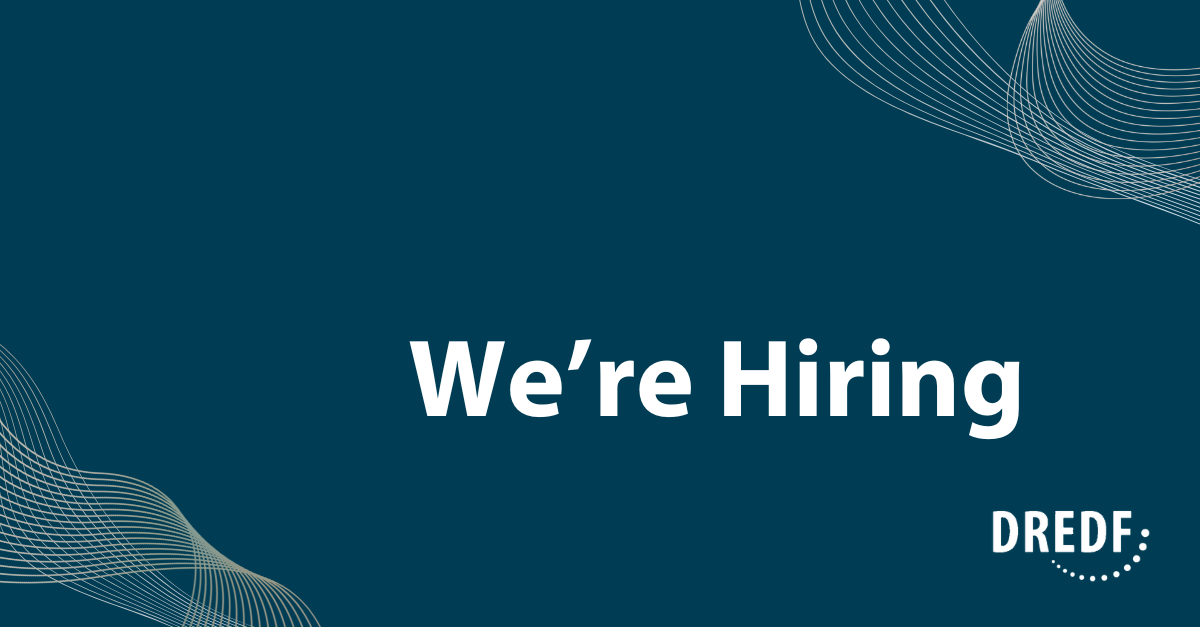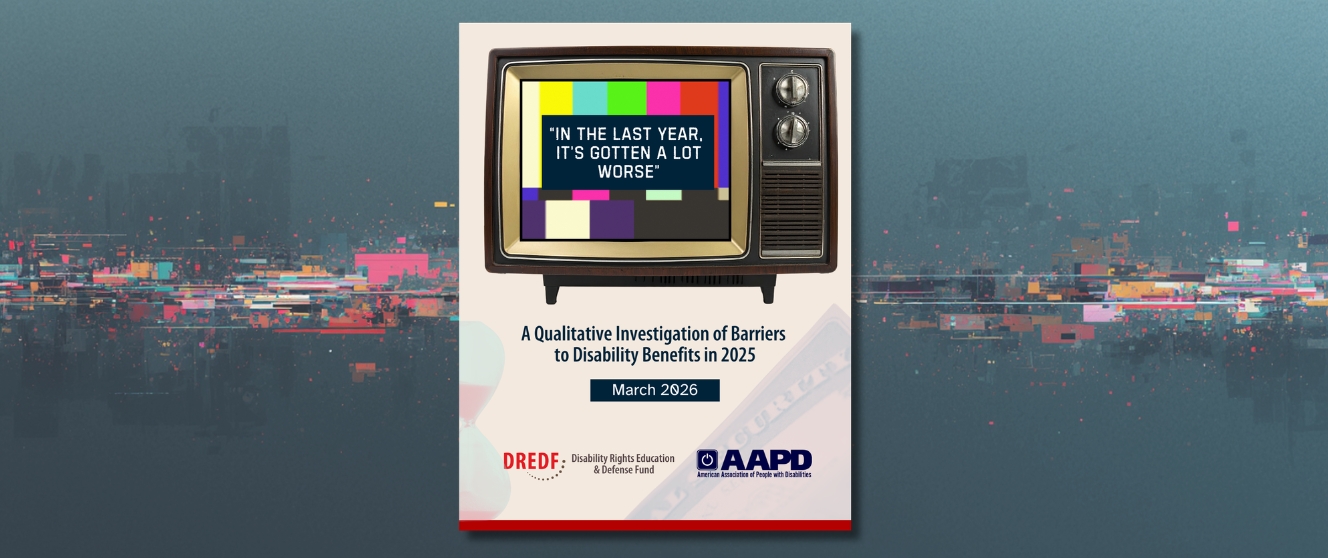

For Immediate Release:
October 6, 2025
Press Contacts:
Autumn Elliott, Disability Rights California: (213) 500-9454, autumn@elliottimpact.com
Shawna Parks, Disability Rights Advocates: (510) 665-8644, sparks@dralegal.org
Silvia Yee, Disability Rights Education and Defense Fund: (510) 644-2555, media@dredf.org
San Francisco, California — On October 3, 2025, District Court Judge Maxine M. Chesney granted final approval to a class action settlement of a case filed in San Francisco Federal Court against the California Department of Health Care Services (DHCS) and three counties for failing to provide Medi-Cal notices in accessible formats, such as Braille.
The settlement requires significant changes to ensure the DCHS is able to provide effective communication to blind individuals. This includes ensuring that blind people can say they want to receive written materials in alternative formats for any method by which they apply for Medi-Cal, start the Medi-Cal eligibility process, respond to the Medi-Cal redetermination process, or review or correct application and eligibility information. As part of the Agreement DCHS will have an online form that blind individuals can use to tell DHCS that they need to receive written materials in alternative formats; provide all written materials that pertain to a blind individual’s Medi-Cal benefits or application in the format requested by the individual, including standard alternative formats like large print, Braille, and audio and electronic formats; and inform individuals that they can also request other, non-standard alternative formats.
The named counties—Contra Costa, San Diego, and Alameda—must cooperate with DCHS’s plan, train relevant employees and ensure a designated employee to answer questions regarding effective communication with blind people.
The settlement resolves a long-standing case, originally filed in 2018 by Disability Rights Advocates (DRA), Disability Rights California (DRC), and the Disability Rights Education and Defense Fund (DREDF) on behalf of the California Council of the Blind (CCB) and three individuals. Learn more about the case, read the complaint, and read the settlement agreement.
“The California Council of the Blind applauds the settlement in the Hinkle case for confirming the right of blind Californians who rely on Medi-Cal for their health care to receive personal and program information in accessible formats,” said Guillermo Robles, president of the California Council of the Blind. “Before this case was filed, visually impaired Californians could not access eligibility and treatment decisions or other important information about Medi-Cal independently and privately. CCB looks forward to partnering with the California Department of Health Care Services in the removal of this significant barrier to health care.”
Shawna Parks, Chief Litigation Officer at Disability Rights Advocates said, “This is a robust and well-crafted settlement. It will ensure that people who are blind and who are, or want to be Medi-Cal recipients are able to participate in enrollment, determination and other processes that are key to receiving these critical health care services.”
“Everyone should be able to get information about their health care in a way that maintains their privacy,” said Autumn Elliott, who recently left Disability Rights California to start her own law firm and has led the legal team for this case since its inception. “This settlement accomplishes that for people receiving or applying for Medi-Cal by ensuring that blind individuals can independently review their own health care notices.” Anna Leach-Proffer, Managing Attorney at Disability Rights California, added, “We are all committed to enforcing the terms of this agreement to ensure that people who are blind have equal access to information about Medi-Cal going forward.”
“DREDF is proud to have worked with our determined individual clients, the California Council of the Blind, and our skilled co-counsel to secure a settlement that will ensure blind Medi-Cal enrollees can privately and independently read Medi-Cal program information and their individualized notices. Medi-Cal is going to go through some major changes over the next couple of years and it will be critically important for every Medi-Cal beneficiary to have effective communication so they can understand the impact on their own healthcare benefits,” said Silvia Yee, Public Policy Director at Disability Rights Education and Defense Fund.
***
California Council of the Blind (CCB) is a non-profit membership organization composed of Californians who are blind or have low vision. CCB’s mission is to gain full independence and equality of opportunity for all blind and visually impaired Californians. To read more about CCB visit: ccbnet.org.
Disability Rights Advocates (DRA), founded in 1993, is a nonprofit disability rights legal center that seeks to advance equal rights and opportunity for people with all types of disabilities nationwide. DRA represents people with all types of disabilities in complex, system-changing, class action cases. For more information, visit dralegal.org.
Disability Rights California (DRC) is a non-profit organization founded in 1978. We protect the rights of people with disabilities. Visit us at disabilityrightsca.org.
The Disability Rights Education and Defense Fund (DREDF), founded in 1979, is a leading national civil rights law and policy center directed by individuals with disabilities and parents who have children with disabilities. DREDF engages in legal advocacy, training, education, and public policy and legislative development to ensure people with disabilities live full and independent lives free of discrimination. For more information, visit dredf.org.


